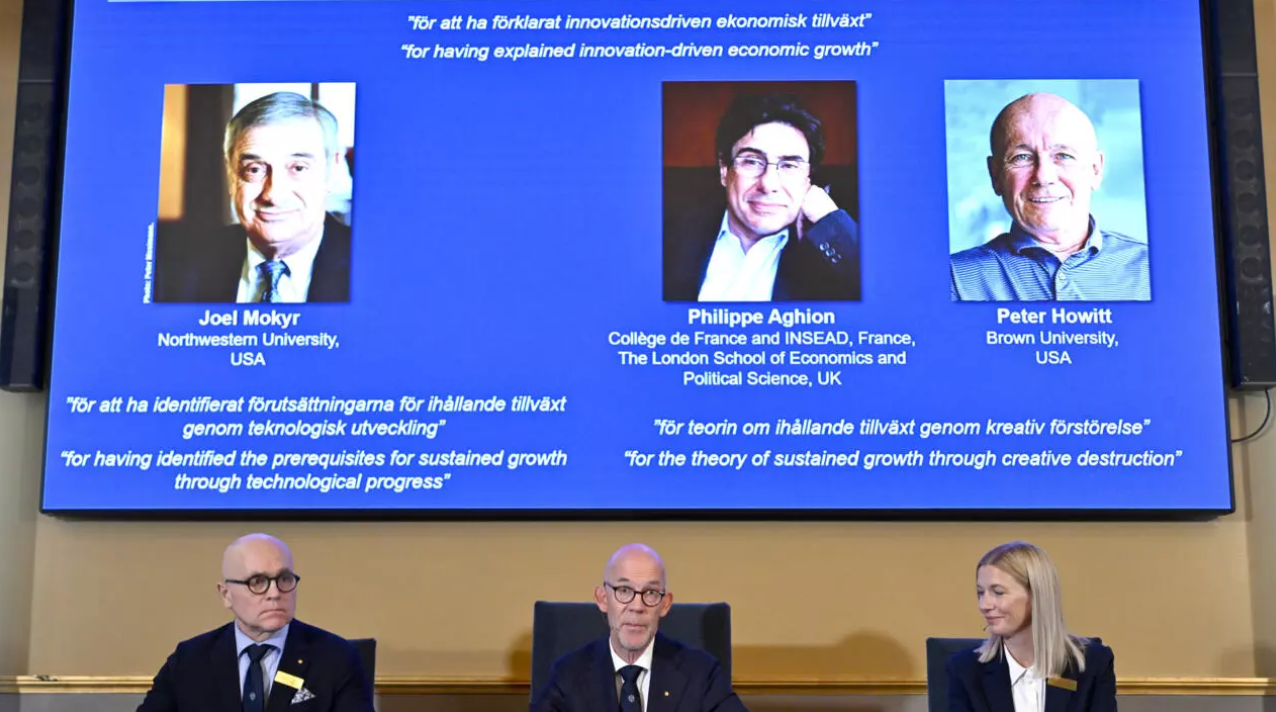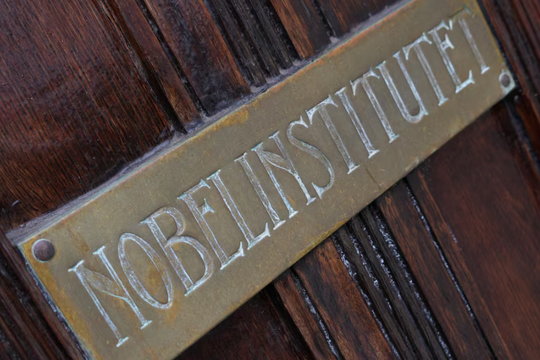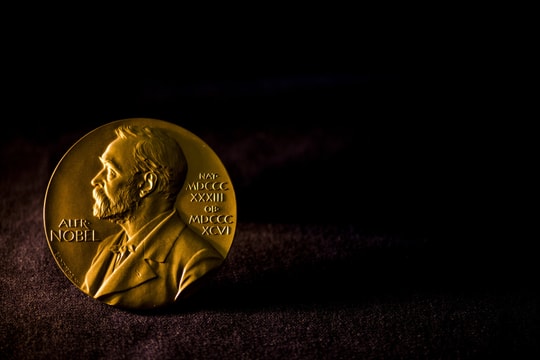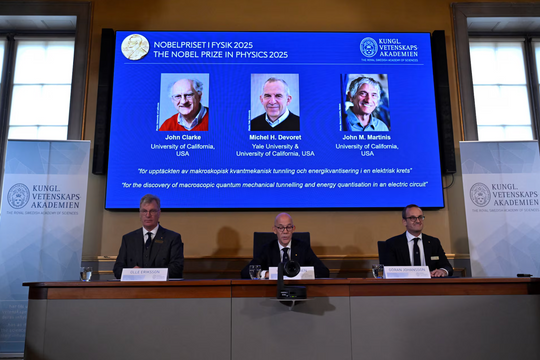Nobel Prize in Economics 2025: A wake-up call for protectionism and the AI era
The prize celebrates the theory of “creative destruction” but also sends a strong message about the risks of deglobalization and the challenges that artificial intelligence poses to the global labor market.
The foundation of modern prosperity

The 2025 Nobel Prize in Economics has been awarded to three economists: Joel Mokyr, Philippe Aghion and Peter Howitt, honoring groundbreaking work that helps decode the deep connection between technological innovation, “creative destruction” and sustainable economic growth. This year’s prize carries a strong and highly relevant message in the context of the global economy facing many challenges from protectionism, geopolitical competition and technological leaps.
On October 13 (Stockholm time), the Royal Swedish Academy of Sciences announced that the Swedish Central Bank Prize in Economic Sciences in Memory of Alfred Nobel, also known as the Nobel Prize in Economics, went to three prestigious researchers: Joel Mokyr (Dutch-American, 79 years old, professor at Northwestern University, USA), Philippe Aghion (French, 69 years old, professor at the London School of Economics and College de France), and Peter Howitt (Canadian, 79 years old, professor at Brown University, USA).
In its statement, the prize committee stressed that the trio's work "explained innovation-driven economic growth." They taught us that sustainable growth cannot be taken for granted. "Economic stagnation, not growth, has been the norm for much of human history. Their work shows that we must recognize and counter threats to continued growth," the Academy asserted.
In particular, Professor Joel Mokyr is credited with demonstrating that for inventions to follow one another in a self-replicating process, we need not only to know that something works, but also to have a scientific explanation for why. Professors Aghion and Howitt, meanwhile, have contributed to clarifying and quantifying more effectively a key concept in economics: “Creative Destruction.” This concept, first proposed by economist Joseph Schumpeter in 1942, describes the process by which beneficial new inventions displace, and thereby destroy, older technologies and firms. Aghion and Howitt have built theoretical models and empirical analyses to show how this process boosts productivity, creates new products, improves the quality of life, and raises living standards globally. Their work has reshaped how economists, policymakers, and researchers approach the mechanisms behind technological progress and prosperity.
Messages from the new Nobel laureates

In addition to their academic value, the Nobel Prize winners' speeches immediately after receiving the award directly addressed hot issues of the world economy, providing insights from leading minds. All three economists expressed concerns about the current anti-globalization trend and trade barriers. Professor Howitt was outspoken in his criticism of US President Donald Trump's trade policies. "It's very clear that these policies will discourage innovation by reducing what we call the scale effect," he told Reuters. "Starting a tariff war just reduces the size of the market for everyone."
Agreeing, Professor Aghion said that deglobalization and tariff barriers are “impediments to growth.” The larger the market, he explained, the more opportunities there are for the exchange of ideas, technology transfer, and healthy competition. “Anything that hinders openness is an obstacle to growth. So I see dark clouds gathering, pushing trade barriers and openness,” he said.
Another notable point is Professor Aghion's call for Europe. He argues that Europe needs to learn from the US and China, which have found a way to reconcile competition and strategic industrial policy. "In Europe, in the name of competition policy, we have become very hostile to any form of industrial policy. I think we need to change that and find ways to reconcile industrial policy in areas like defense, climate, AI, biotechnology," he said.
Notably, the new Nobel Prize winners themselves have diverse perspectives on the impact of today's most disruptive technology: artificial intelligence (AI). Professor Peter Howitt warns that while AI offers "incredible potential," it also has "the extraordinary ability to destroy jobs or replace highly skilled workers." Therefore, he emphasizes that this technology needs to be regulated, because private incentives in an unregulated market will not be able to resolve this conflict in the best way for society.
On the other hand, Professor Joel Mokyr has a more optimistic view. He said: "Machines do not replace us. They lead us to more interesting and challenging jobs." According to him, the biggest concern for the future labor market is not "technological unemployment" but the labor shortage as the population ages. The dialogue of views between the winning scientists has shown the complex duality of "creative destruction" in the AI era, posing a big problem for global policymakers.
Ultimately, in a turbulent world where economic growth is challenged by climate change, geopolitical tensions, and inequality, the work of Mokyr, Aghion, and Howitt offers a poignant reminder: prosperity is not a given. It is driven by a dynamic, relentless process of innovation, creativity, and the willingness to “destroy” old things to make way for new and better ones. Public policy and the macro environment have a decisive role in nurturing or inhibiting this vital process. That is the core message and enduring value of the 2025 Nobel Prize in Economic Sciences.
The Nobel Prize in Economics, officially known as the Swedish Central Bank Prize in Economic Sciences in Memory of Alfred Nobel, was established in 1968. Although not one of the five original Nobel Prizes established by Alfred Nobel, it is always awarded along with the other prizes on December 10 and is equally prestigious. With this year's prize worth 11 million Swedish krona (about $1.2 million), it is the highest recognition for contributions in the field of economics. As an interesting detail, Professor Howitt recalled that his colleague, Philippe Aghion, believed they would win the Nobel Prize right from their first research in 1987. "Philippe always said: 'Our time will come.' And now it has come. It's amazing."







